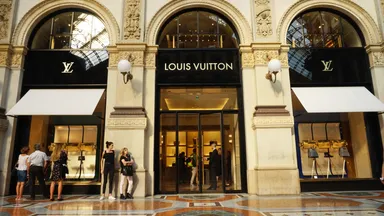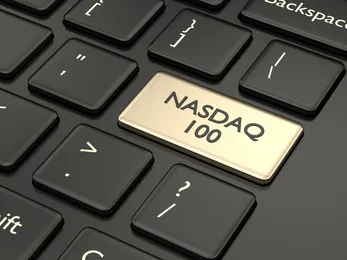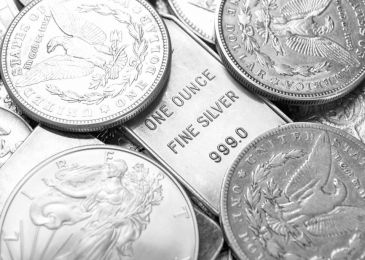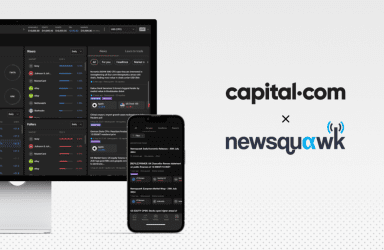Featured articles

DAX 40 continues to push to new highs
The DAX 40 sees six consecutive days of gains as the index pushes to new highs driven by risk-on sentiment
09:54, 12 January 2026

From Caracas to Wall Street: how the U.S.–Venezuela crisis could move markets
The start of the new year has marked a dramatic escalation in the United States’ confrontation with Venezuela.
08:53, 9 January 2026

Intel stock split: what it means for traders
Intel’s long history of stock splits reflects the company’s evolution through several major technology cycles, from early PC growth to data-centric expansion. With its most recent split taking place more than two decades ago, questions often arise about whether Intel may adjust its share structure again.
15:49, 19 December 2025

US Wall Street 30 forecast: Third-party targets
The US Wall Street 30 (US30) reflects price movements across a basket of major US blue-chip companies and is closely watched by traders and investors as a gauge of US equity sentiment.
23 hours ago

Droneshield stock forecast: Third-party price targets
DroneShield has attracted increasing market attention in recent years as demand for counter-drone and defence technologies has evolved. Contract timing, government spending priorities, and shifts in security policy can all influence DRO’s stock movements.
23 hours ago

Tesla stock forecast: Third-party price targets
Tesla is one of the most closely watched names in global equities, with its share price often reacting to a mix of company updates, sector trends and wider market conditions. Discover the latest third-party TSLA stock predictions.
24 hours ago

LVMH stock forecast: Third-party price targets
LVMH Moet Hennessy Louis Vuitton SE is one of the world’s largest luxury goods groups and a closely watched stock on European markets. Explore MC’s recent price action, third-party price targets and technical analysis.
24 hours ago

US Wall Street 30 forecast: Third-party targets
The US Wall Street 30 (US30) reflects price movements across a basket of major US blue-chip companies and is closely watched by traders and investors as a gauge of US equity sentiment.
23 hours ago

Trading the Nasdaq 100 as Chair Powell is Under Investigation
Risk-off moves in the financial market see futures go for a dip, but it’ll require a bit more to shake off longer-term positive technicals and majority buy sentiment among traders.
10:42, 12 January 2026

DAX 40 continues to push to new highs
The DAX 40 sees six consecutive days of gains as the index pushes to new highs driven by risk-on sentiment
09:54, 12 January 2026

Year-end volatility appears as strong US growth meets Yen intervention risk
US growth comes in stronger than expected in the third quarter and Japan FX intervention rhetoric. ramps up.
10:13, 24 December 2025

Palladium price forecast: Third-party outlook
Palladium trades within a market shaped by industrial use, limited supply and evolving economic expectations. These influences often intersect in ways that drive short-term volatility, setting the context for recent movements in XPD/USD prices.
11:36, 15 January 2026

Natural gas price forecast: Third-party outlook
US natural gas prices are influenced by a complex mix of seasonal demand, weather patterns, production trends and global energy flows. Explore third-party analyst perspectives and technical indicators.
12:05, 14 January 2026

Silver price forecast: Third-party outlook
Silver plays a unique role in global markets, sitting at the intersection of industrial demand and speculative interest. Explore third-party XAG/USD forecasts and Capital.com analyst outlook.
14:50, 12 January 2026

Platinum price forecast: Third-party outlook
Platinum has drawn renewed attention at the start of 2026, with prices trading at levels not seen previously and day-to-day ranges widening across recent sessions.
14:35, 12 January 2026

EUR/USD forecast: Third-party price targets
Movements in the euro–US dollar exchange rate often reflect a shifting balance between economic data, central bank expectations and broader market conditions.
14:00, 14 January 2026

US dollar forecast: Third-party price targets
The US dollar’s performance often sits at the centre of broader market conversations, reflecting how investors are interpreting interest rates, economic data and policy direction at a given moment.
11:42, 14 January 2026

From Caracas to Wall Street: how the U.S.–Venezuela crisis could move markets
The start of the new year has marked a dramatic escalation in the United States’ confrontation with Venezuela.
08:53, 9 January 2026

Year-end volatility appears as strong US growth meets Yen intervention risk
US growth comes in stronger than expected in the third quarter and Japan FX intervention rhetoric. ramps up.
10:13, 24 December 2025

The Simpsons predicted XRP to hit $589: What’s behind the viral claim?
The link between The Simpsons and real-world events often resurfaces when online communities revisit past episodes for possible references or coincidences. XRP has recently been drawn into this discussion, leading some viewers to question whether the show ever hinted at a specific price level.
17:45, 12 December 2025

Bitcoin price prediction: Third-party outlook
Discover Bitcoin price projections 2025–2030 with third-party BTC forecasts, technical trends, price history, and CFD market sentiment.
16:44, 8 December 2025

Discover Newsquawk: your integrated in-platform newsfeed
News moves fast — and so do the markets. With Newsquawk integrated into Capital.com, you can explore real-time headlines, detailed reports and tailored updates directly where you trade.
08:23, 5 December 2025

Top crypto traders to follow by social media popularity in 2025
Influencers, analysts and developers use digital platforms to exchange ideas, interpret market trends and discuss the development of digital assets. As their audiences grow, these voices increasingly shape how information spreads and how trading discussions evolve across communities.
15:11, 1 December 2025
